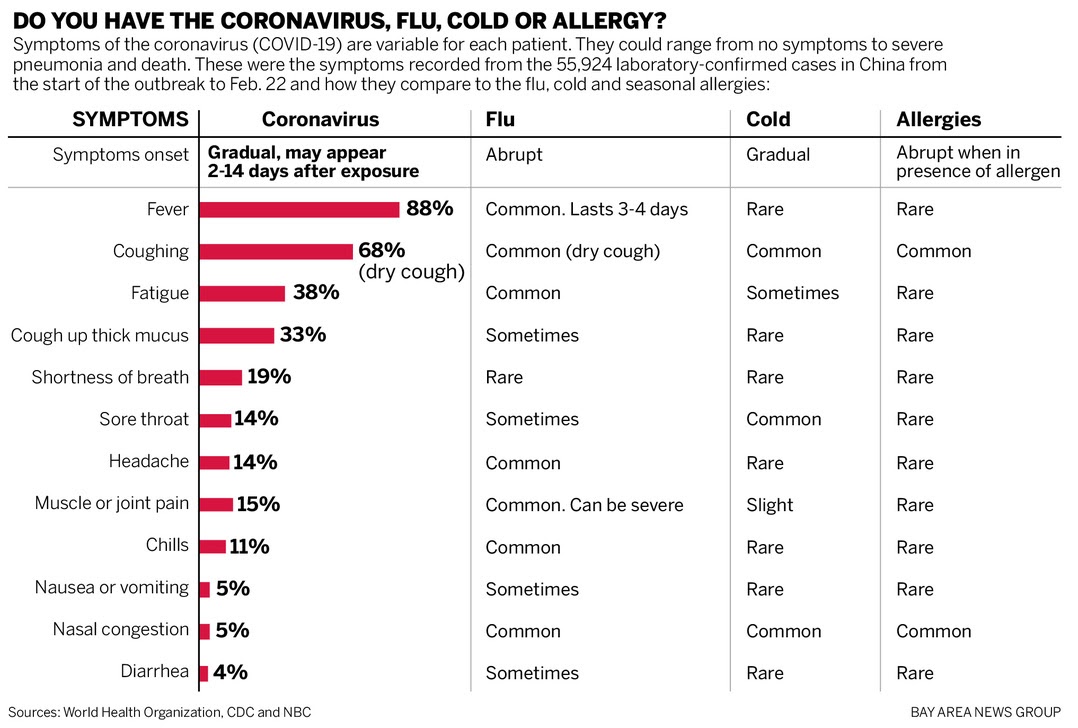How Can We Help?
How can I tell if I have COVID-19 versus a common cold versus allergies?
It’s relatively easy to distinguish allergies from potential COVID-19 symptoms. Allergy symptoms rarely extend beyond the head — with nasal congestion, itchy eyes and sneezing — unless you also get rash. If you had similar symptoms each year, and especially if your symptoms respond to your usual allergy treatment, it’s most likely allergies.
The challenge is telling the difference between a seasonal virus (common cold), or flu (influenza), and coronavirus, as each of these can affect the upper and lower respiratory tracts. Cold and mild flu symptoms resolve themselves with rest, plenty of fluids and over-the-counter medications (but could still represent mild COVID-19). More severe flu and coronavirus symptoms can intensify and look more the same than different. COVID-19 seems to have more predictable fever and cough, and less aches and pains and nasal congestion. Typically influenza also has very sudden onset of symptoms whereas COVID-19 has gradual worsening of symptoms. Please see the informative chart below for more details.
Given our current level of community spread, it is prudent from a public health perspective to assume that anyone with a cough, cold OR fever symptoms has COVID-19. As a result, we recommend that you stay on “self-quarantine” until three days (72 hours) have passed since recovery of symptoms (defined as resolution of fever without the use of fever-reducing medications AND improvement in respiratory symptoms [eg, cough, shortness of breath]) AND at least 7 days have passed since your symptoms first appeared.



